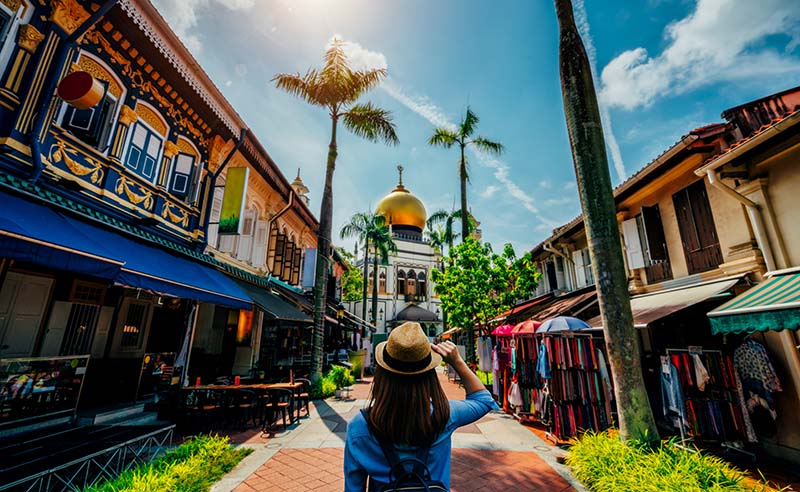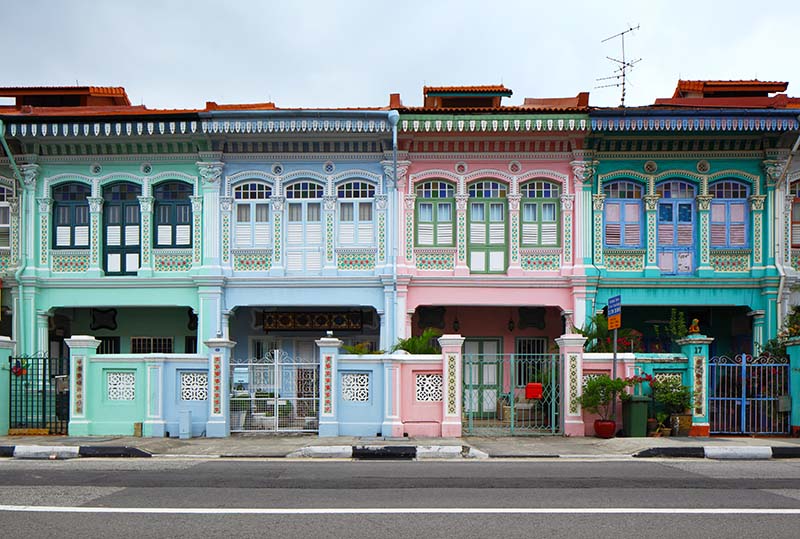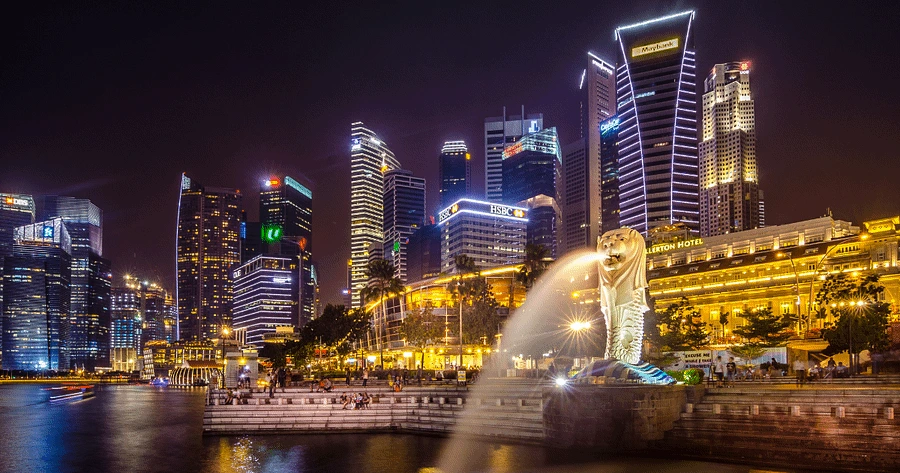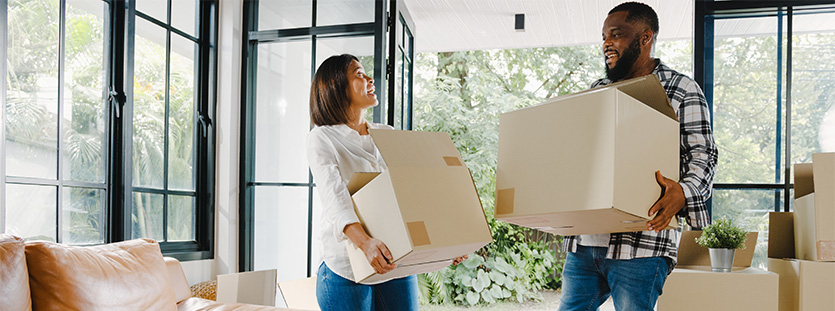Few places encapsulate the exhilarating and rejuvenating traits of expat life as effectively as the city-state of Singapore, a bustling nation of skyscrapers framed by lush jungles where temperature rarely drops below 77°F. Whether you’re a solo expat or moving to Singapore with your family, you can easily find your place in the vibrant crowd.
Designed to assist both future and current expats, this guide covers everything from the basics of visas to navigating healthcare and building a social network. Keep reading to discover what life in Singapore looks like in 2023.
What to Anticipate Relocating to Singapore in 2023
Singapore, a sovereign nation in Southeast Asia, has long been known for its thriving expat community. In fact, it was ranked the world’s best destination for expats by HSBC in 2018. It’s no surprise that so many expats are drawn to Singapore given its impressive happiness indicators, including high GDP, robust social support and excellent healthcare.
If you’re considering joining this diverse community, there are essential aspects to consider, such as the cost of living, visa requirements and vaccines. As with any move, there are a multitude of things to organise before your arrival, from securing health insurance to finding your future home. We’ve created a comprehensive overview of what life in Singapore entails in 2023 and what you can expect from your move.

Is Singapore Still a Preferred Destination for Expats?
Absolutely! As of June 2020, the expat population in Singapore stood at 1.64 million, representing nearly 29% of the nation’s total population of 5.69 million, as per the Population in Brief 2020 report. With more than a quarter of its workforce being expatriates, Singapore remains a city teeming with expat life. However, it’s noteworthy that the COVID-19 pandemic coincided with Singapore’s first population decline in a decade. According to the report, the non-resident population, which includes work permit holders and international students, decreased by over 35,000 between 2019 and 2020.
Despite the challenges posed by the pandemic, Singapore experienced an influx of businesses and expats relocating from Hong Kong in 2020. Many individuals chose to exchange political uncertainty for the stability offered by Singapore, resulting in heightened demand for prime Singaporean properties. These demographics continue to shape the expat experience in Singapore, fostering an international atmosphere and offering opportunities to connect with others from your home country while embracing cultural diversity.
Relocating to Singapore from USA and UK
Singapore, once a British colony, remains a top destination for expat workers from the USA and the UK due to its status as one of the world’s premier business economies. Singapore offers ample opportunities to forge new friendships, and if you’re moving with your family, the education system is highly regarded. However, it’s important to note that the cost of renting or buying property in Singapore tends to be on the higher side.
Is Living in Singapore Expensive?
In general, yes, Singapore is known for its high cost of living. In The Economist’s Worldwide Cost of Living Report 2020, Singapore ranked as the world’s fourth most expensive city. Therefore, ensuring that your income aligns with your expenses and expat relocation package is crucial.
How Much Do You Need to Budget to Live in Singapore with a Family?
Expatriate life in Singapore comes with a price tag, so it’s essential to calculate your expenses when relocating with a family. The budgets you’ll need depend on factors like your choice of residence, school fees, commuting costs, healthcare, and your desired lifestyle. Some expats opt for global income protection insurance to enhance their financial security.
What Language is Spoken in Singapore?
While the official language of Singapore is Malay, English is widely used in daily interactions. English serves as a lingua franca, making it convenient for expats to navigate daily life. However, embracing some basic Malay phrases can be helpful for communicating with the local population. Several local providers, including Inlingua and government organisations like People’s Association (PA), offer Malay language classes.
How Has Singapore Managed the COVID-19 Pandemic?
Singapore has relied on high-speed testing and vaccination efforts as it adapts to living with the ongoing COVID-19 pandemic. For over a year, Singapore pursued a “Covid-zero” strategy, effectively suppressing the spread of the virus through strict border controls, mask mandates, enforced social distancing, and robust contact tracing. However, starting in July 2021, Singapore transitioned to a “living with Covid” approach, easing restrictions as its leaders recognised that complete eradication of the virus was unlikely due to the emergence of new variants.
Connecting with Other Expats in Singapore
With a substantial expat community, life in Singapore is dynamic and offers plenty of opportunities to meet new people. Beyond popular activities like shopping on Orchard Road and enjoying the nightlife at Marina Bay, expats often join social clubs such as the American Association or the British Club to build connections. It’s not just expats who get to experience the vibrant culture; expat spouses and children can also embrace Singaporean life by using community forums and participating in summer camps to make friends. Moreover, Singapore’s efficient Mass Rapid Transit (MRT) subway system means you may not need a car, but if you choose to have one, you’ll need to convert your driver’s licence after 12 months.
Top Tips for Expats Living in Singapore
Adjusting to a new environment, especially in a bustling city, can take time and effort. Building connections can greatly enhance your expat experience in Singapore. Here are some tips to make your life as an expat in Singapore the best it can be:
- Ensure you have all essential documents and visas in place before departure
- If you’re moving with children, apply for school places early
- Be prepared to have up to three months’ rent available upfront to secure a rental property
- Be aware that you are responsible for submitting and paying your own taxes bi-annually
- Consider life insurance and health coverage that suits your specific needs in Singapore.
- Prioritise your health, immerse yourself in the local culture, and consider taking language lessons to enhance your experience.
Finding Accommodation in Singapore
Singapore’s expat communities often cluster in specific neighbourhoods, such as Tiong Bahru, often referred to as Singapore’s Brooklyn for its artsy vibe, and Holland Village, a well-connected district known for its houses; a rarity in a nation where 80% of the population resides in high-rise government apartments. Tanjong Pagar, located just outside the central business district, is favoured by single expats and couples due to its lively dining scene. Sentosa is renowned for its luxury expat housing, while Woodlands is a popular choice among American expats.
How Do Mortgages for Expats Work in Singapore?
Expats in Singapore can obtain either fixed or variable-rate mortgages covering approximately 60-80% of the property’s value. The remainder typically needs to be funded from a Central Provident Fund (CPF) bank account, a key component of Singapore’s social security system. However, expats often need to pay this sum in cash. There are restrictions on the types of properties foreign buyers can purchase in Singapore, with HDB flats being off-limits. This restriction also means that expats cannot access the Home Protection Scheme (HPS), making global life insurance an important safety net.
The Average Cost of Rent in Singapore
Property in Singapore comes at a premium due to limited land availability, so rental costs can constitute a significant portion of expat expenses. On average, a room in a shared flat starts at around SGD 700 per month (£370/$515 USD), while a one-bedroom apartment may range from SGD 1,500 to SGD 4,000 per month. Recent developments, such as the influx of expats from Hong Kong, could drive these figures even higher. The Singapore Expats Forum can be a valuable resource for finding rentals and staying updated on the latest rates. Most rental accommodations are unfurnished, although they often include essential appliances.
Rentals are typically paid monthly in advance and do not include management fees and government taxes, which can add an additional 12-15% to the rental costs. There may also be legal fees for tenancy agreement signings and an agency introductory fee, usually equivalent to 50% of one month’s rent. Additionally, it’s wise to prepare for an upfront deposit of two to three months’ rent.

The Job Market in Singapore 2023
What Does the Local Job Market Look Like in Singapore?
Singapore, known for its thriving industries and commerce, typically offers an abundance of job opportunities. However, with a constant influx of global talent, competition for top positions remains fierce. Therefore, it is advisable to secure a job contract before relocating to Singapore whenever possible.
How to Find a Job in Singapore
Typically, expats already have employment lined up when they arrive in Singapore. However, circumstances can change, or you may be travelling with a partner seeking employment. To work on a Dependent Pass, you’ll need a letter of consent from the Ministry of Manpower. Some suitable job options for expat spouses and partners in Singapore include:
- Marketing and partnership work, with the potential to earn commission on successful recommendations
- Freelance work, offering flexibility to work from anywhere in the world
- Language tutoring, particularly if you’re a native speaker with relevant qualifications. Singapore’s diverse population created a demand for language skills
When working as an expat in Singapore, it’s essential to be aware of cultural considerations. For instance, some ethnic groups may prefer not to shake hands with the opposite gender, and older Singaporeans may use both hands when shaking hands.
While the official language of Singapore is Malay, English serves as the de facto second language. In most international workplaces, English is the primary language of communication. However, knowing some Malay can be beneficial for interacting with people outside of work and immersing yourself more fully in the local culture.
What Is a Competitive Expat Salary for Living in Singapore?
Experienced expats in professional roles can expect competitive salaries in Singapore. In 2020, the average expat salary for a middle manager in Singapore was SGD 119,927 (£63,574 GBP/$88,045 USD), according to a study by ECA International. However, expatriate benefits packages often surpass this figure, totalling around SGD 216,000. Salary levels vary significantly based on the role, seniority, and industry. Ultimately, if you’re looking to advance your career while earning a competitive salary, Singapore offers ample opportunities to do so.
Visa Requirements and the Cost of Relocating to Singapore
After finalising accommodation, employment, and tax arrangements, the next step is to apply for a visa.
Applying for a Singapore Visa
Typically, expats require an Employment Pass (EP) before entering Singapore. Employers or appointed employment agents often handle the application process on behalf of expats planning to live and work in Singapore. You will need to meet specific criteria to qualify for the pass, such as earning a fixed monthly salary of at least SGD 4,500 (£2,417 GBP/$3,309 USD).
Singapore Employment Pass holders can apply for Dependents Passes for their legally married spouses and children under 21, provided they earn at least SGD 6,000 (£3,223 GBP/$4,412 USD) per month. If you’re not married or have stepchildren, you’ll need a different pass, known as a Long Term Visit Pass.
Entrepreneurs can enter Singapore with an Entrepreneur Pass (EntrePass), while high-earning candidates can apply directly with the Personalised Employment Pass (PEP).
Other work permits may be granted to professionals with specific skills.
Expat Schools in Singapore
Singapore offers numerous international schools catering to English-speaking expat families, many of which follow the International Baccalaureate (IB) curriculum. Additionally, there are international schools aligned with specific national education systems. Annual fees for international schools in Singapore can range from approximately SGD 10,000 (£5,300 GBP/$7,354 USD) to SGD 50,000 (£26,502 GBP/$36,771 USB) per child.
State schools in Singapore are accessible for expat children since English is the primary language of instruction. However, securing a place can be competitive, with priority often given to local students. Some local private schools offer lower fees, starting from SGD 2,000 (£1,060 GBP / $1,500 USB) per year. It’s important to note that using Singapore’s public schools may come with some language barriers and curriculum differences.

Healthcare in Singapore
How Does Healthcare Work in Singapore in 2023?
Singapore maintains a universal healthcare system funded through public statutory insurance and government subsidies. However, temporary residents like expats are not automatically covered by this system. As a result, international health insurance is often necessary to access Singapore’s exceptional healthcare services.
Singapore boasts over a dozen private hospitals, ten government hospitals, and numerous specialist clinics. You can register with a general practitioner (GP) at a public or private clinic for routine healthcare needs, while some medical services, such as vaccinations, may require visits to a polyclinic.
Vaccines Required for Travelling to Singapore
Expats planning to move to Singapore typically need specific vaccines, including:
- Hepatitis B
- Typhoid
- Yellow fever
The vaccinations recommended may vary by age.
Prohibited Medications in Singapore
Singapore has strict regulations regarding certain medications, including potent painkillers, select sleeping pills, and anti-anxiety medications, which are prohibited. If you need to bring these substances or more than a three-month supply of any medication, you must obtain approval.
Your Comprehensive “Moving to Singapore” Checklist
To ensure a smooth transition to your new life in Singapore, it’s essential to be well-prepared. Here’s a checklist to guide your preparations:
- Secure an employment offer
- Find suitable accommodation
- If your property is unfurnished, arrange for essential furniture delivery before your arrival
- Prepay property deposits and any outstanding bills
- Obtain your tenancy agreement as proof of address for various administrative tasks, such as opening a bank account
- Coordinate home Wi-Fi setup with your landlord or property manager
- Confirm whether you can bring your pets
- Create a budget accounting for expenses such as rent, taxes, and other bills/fees
- If you’re moving with children, secure a place for them in a local school
- Engage with a reputable international moving company
- Open a bank account
- Ensure you have the necessary payment cards associated with your account
- Arrange for a local mobile phone with a SIM card
- Acquire international health insurance for yourself and your family
- Stay informed about the COVID-19 situation and keep records of your vaccination
- Apply for a visa at least six weeks before your planned relocation date
- Apply for a visa for your spouse and/or family
- If your spouse will also be working, apply for one work visa that will apply to you both
- Register for a smart identity card once you have received your visa
- Learn some basic Cantonese phrases to help you get by in day-to-day life
After you’ve ensured you’re well prepared…
Enjoy!
Embarking on the adventure of relocating to Singapore in 2023 and beyond is full of excitement and promises great rewards. There’s a wealth of culture to explore and ample opportunities for financial success. Contact us to find out more about our services and how they can support a seamless transition to your new life in Singapore.






